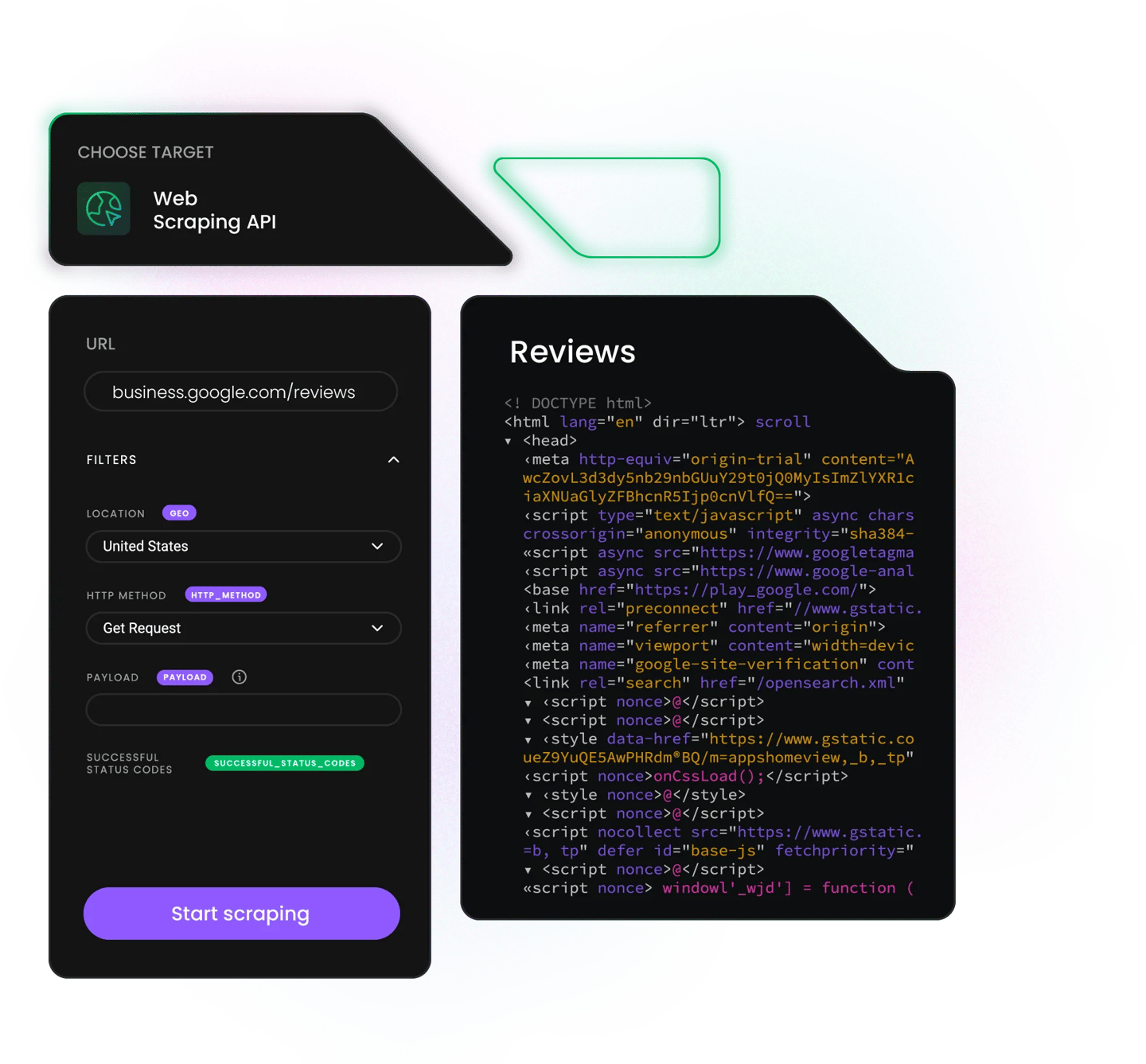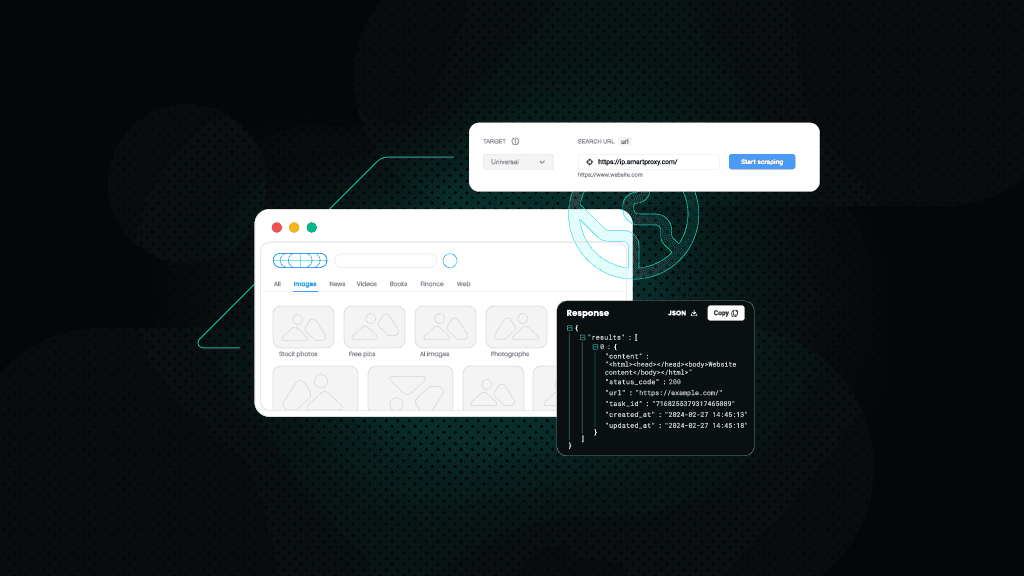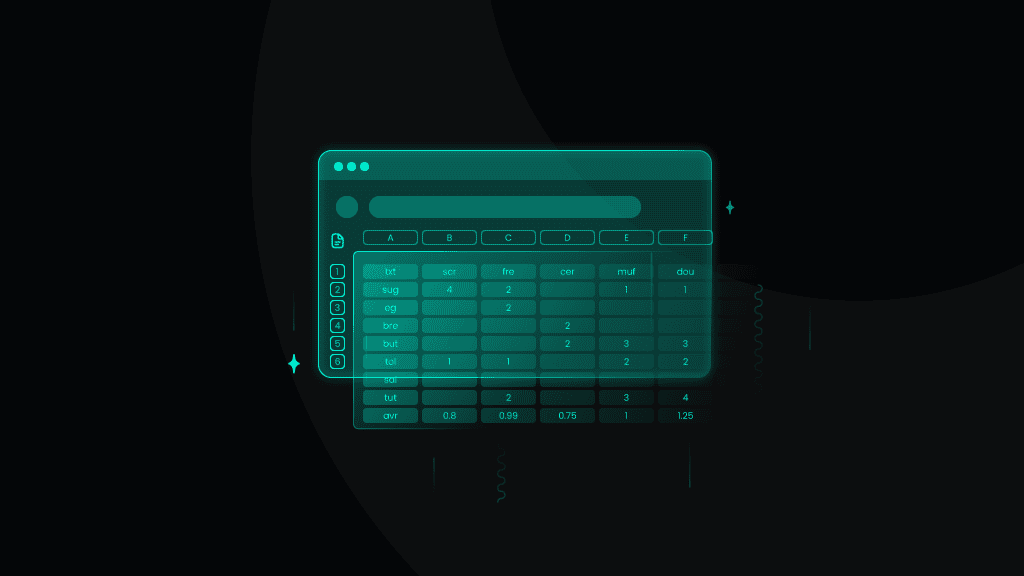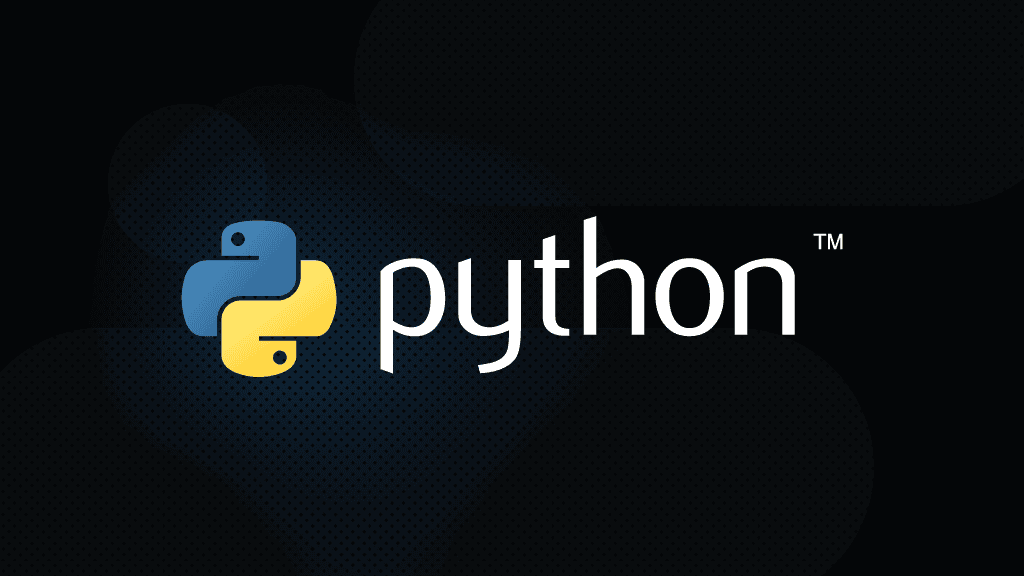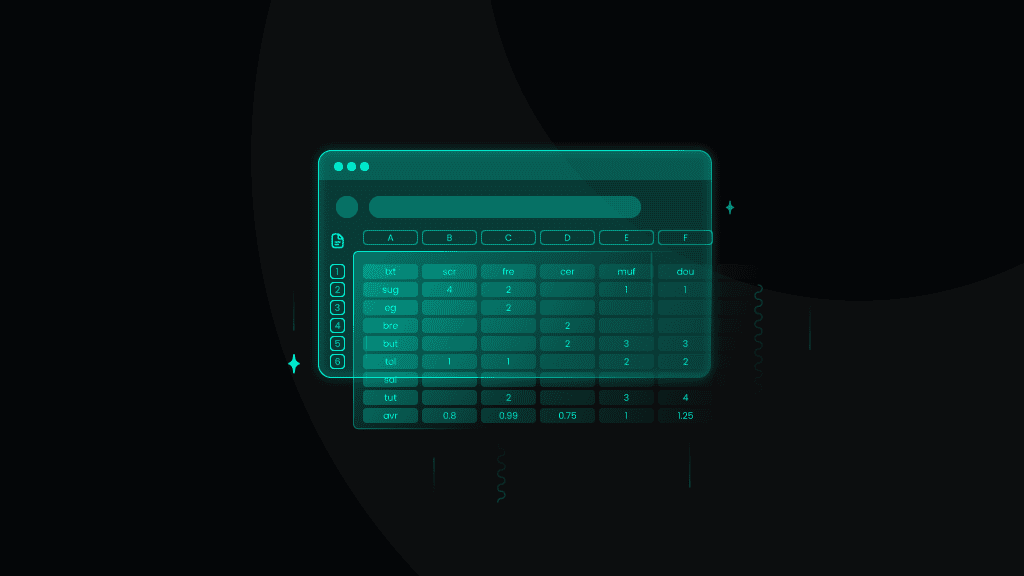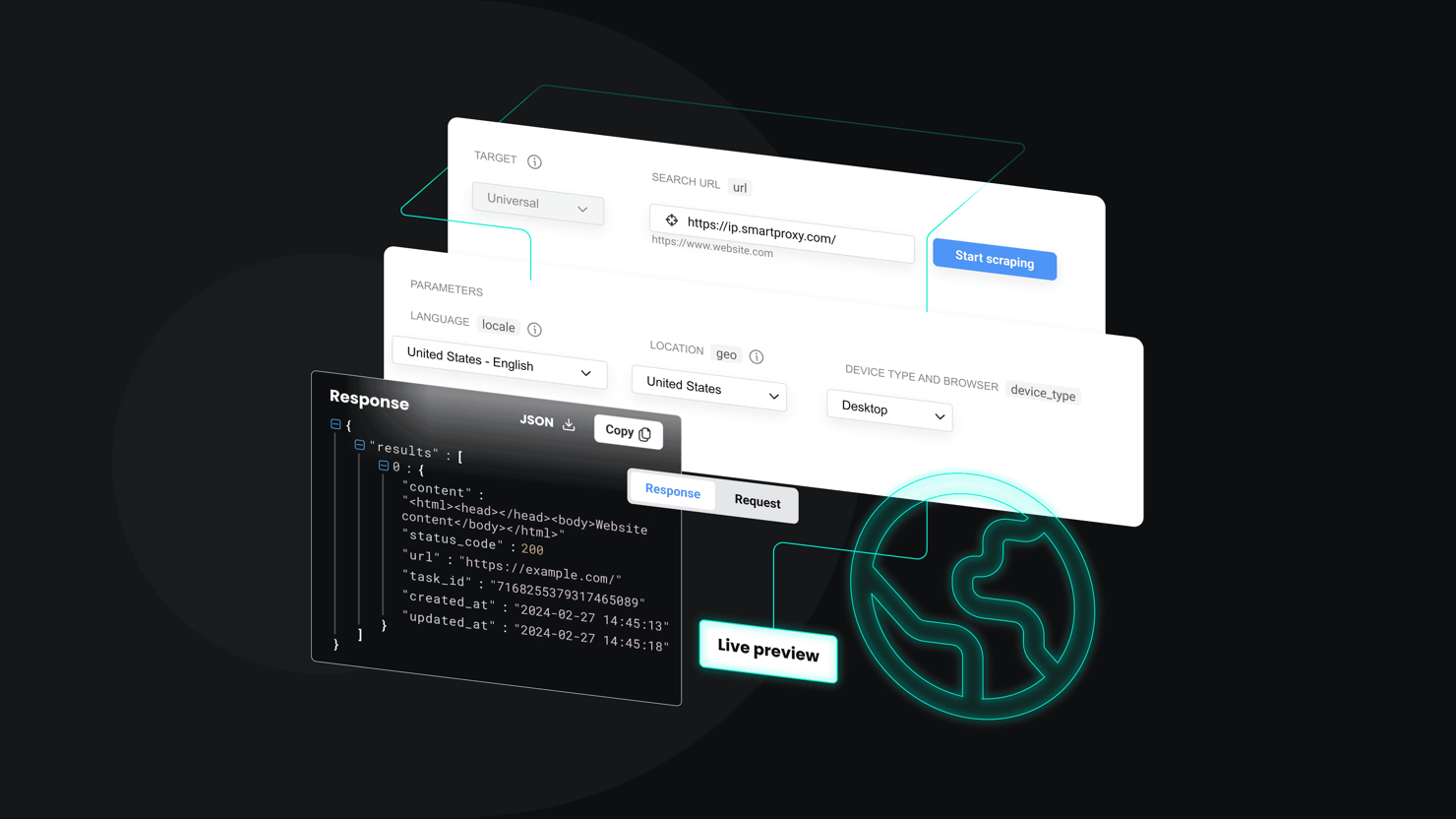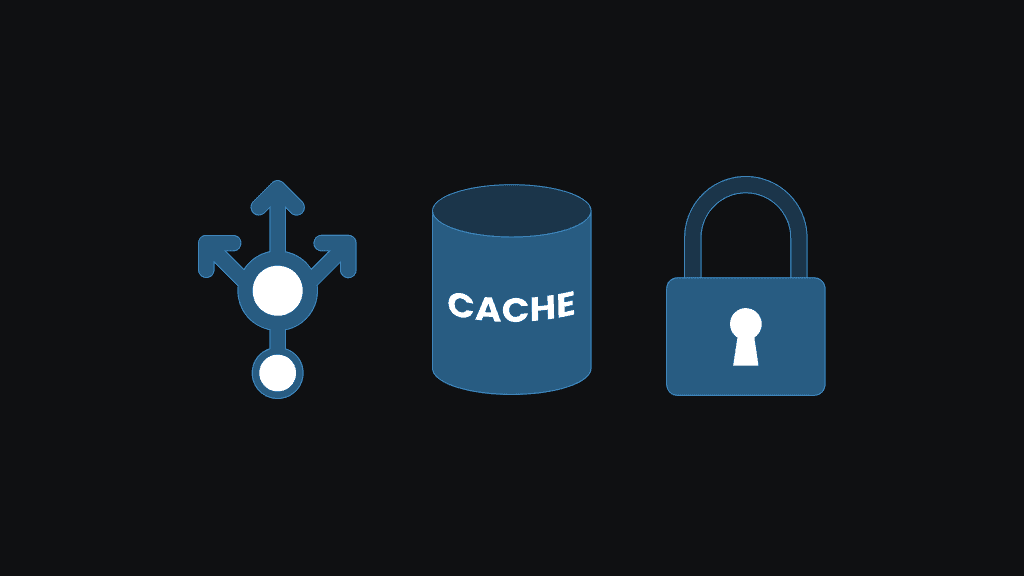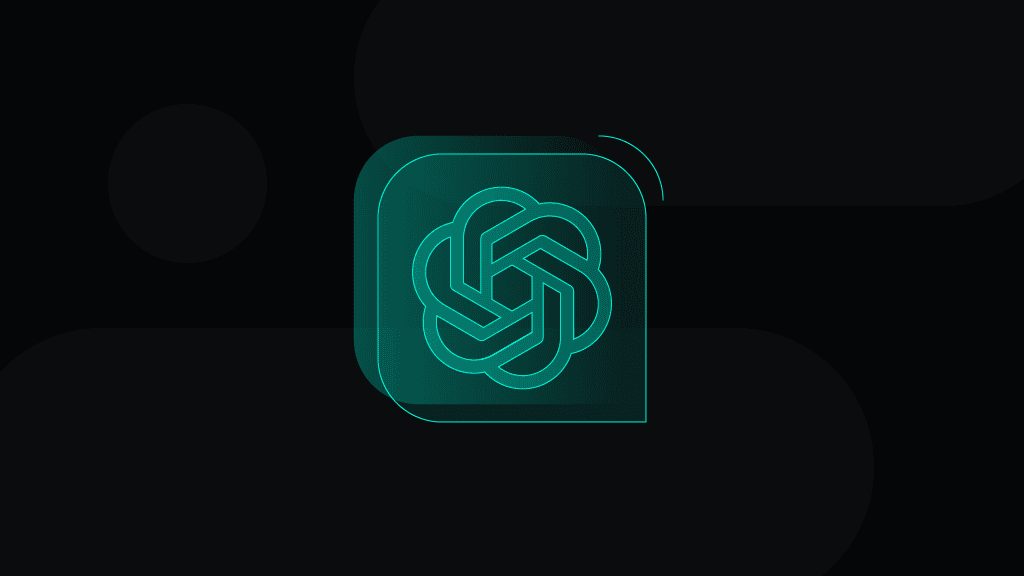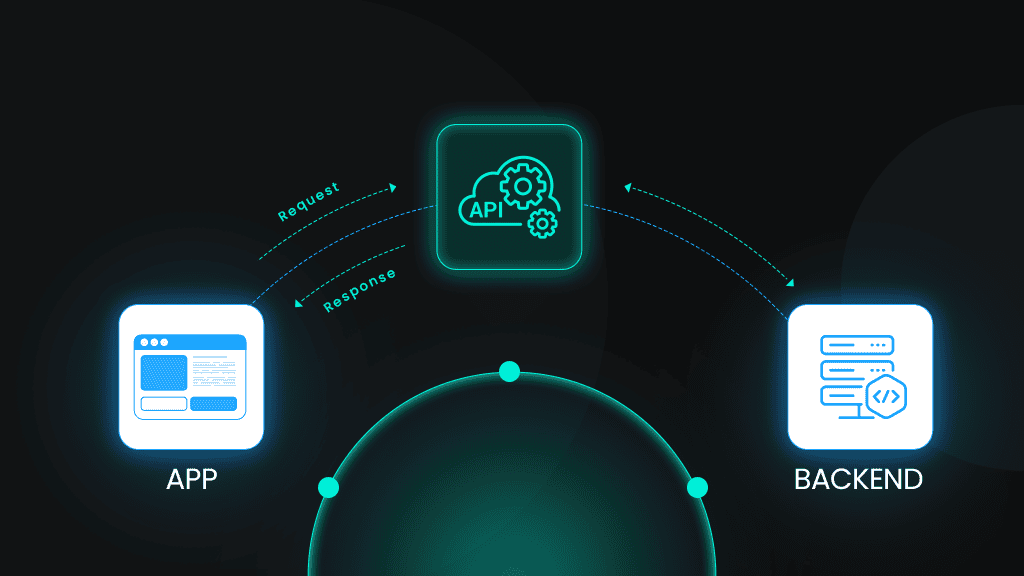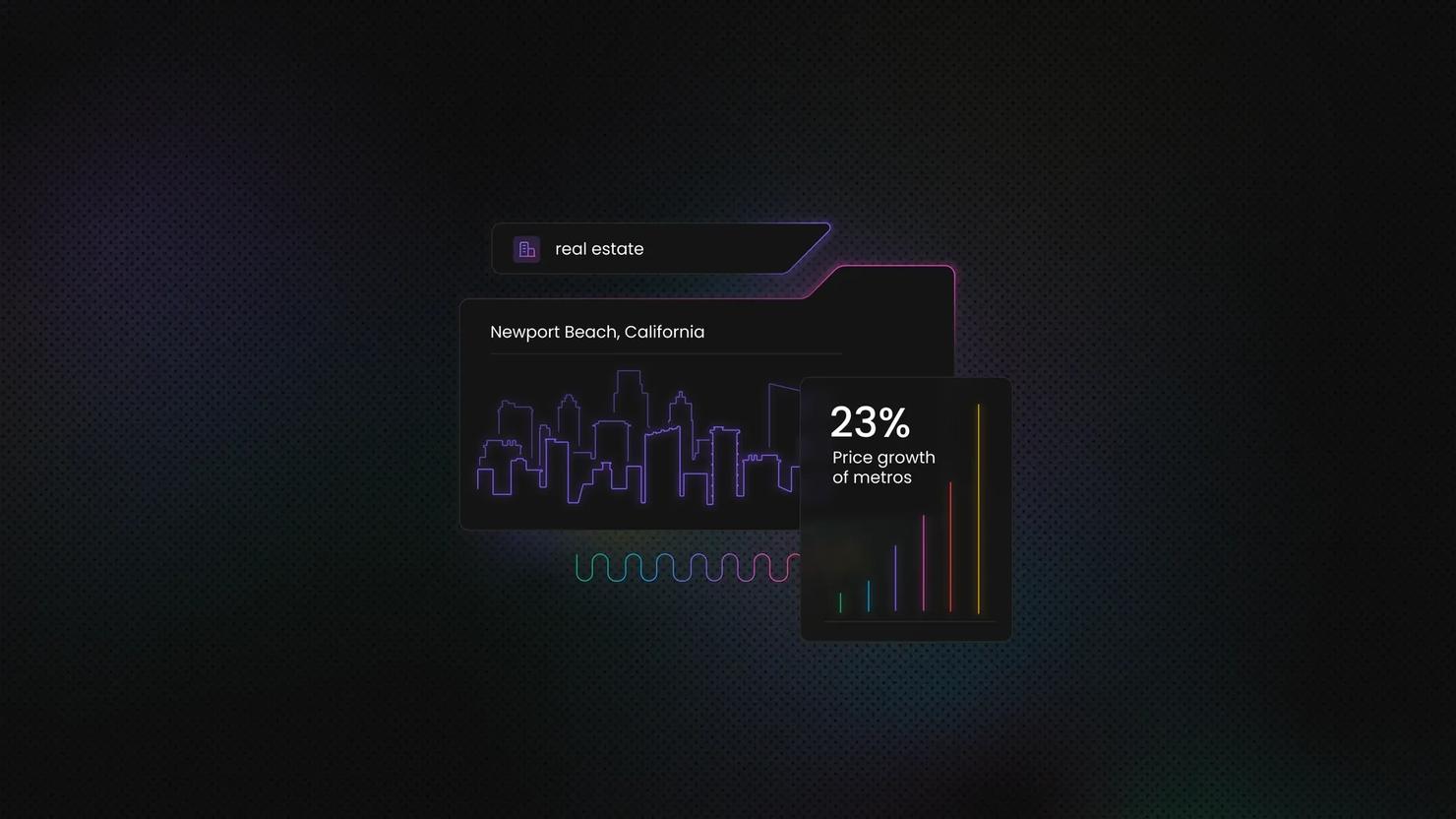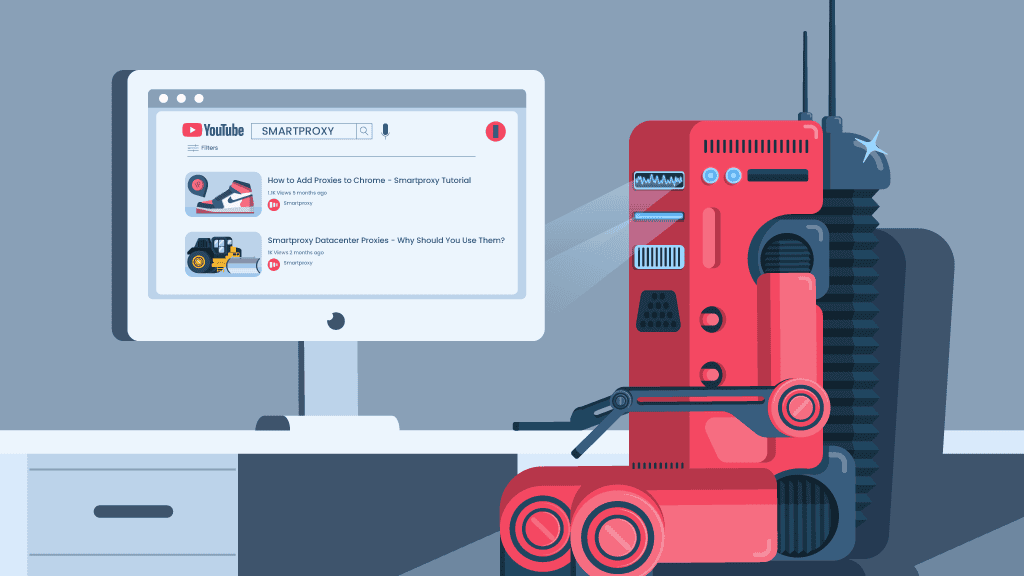Reviews Scraper API
Collect customer feedback and sentiment insights with our universal Reviews scraper API, which delivers real-time product reviews from any platform – no CAPTCHAs, IP blocks, or complex setup to worry about.
* This scraper is now a part of the Web Scraping API.
14-day money-back option
Zero
CAPTCHAs
99.99%
success rate
195+
locations
Task
scheduling
7-day
free trial
Get reviews from any platform, instantly
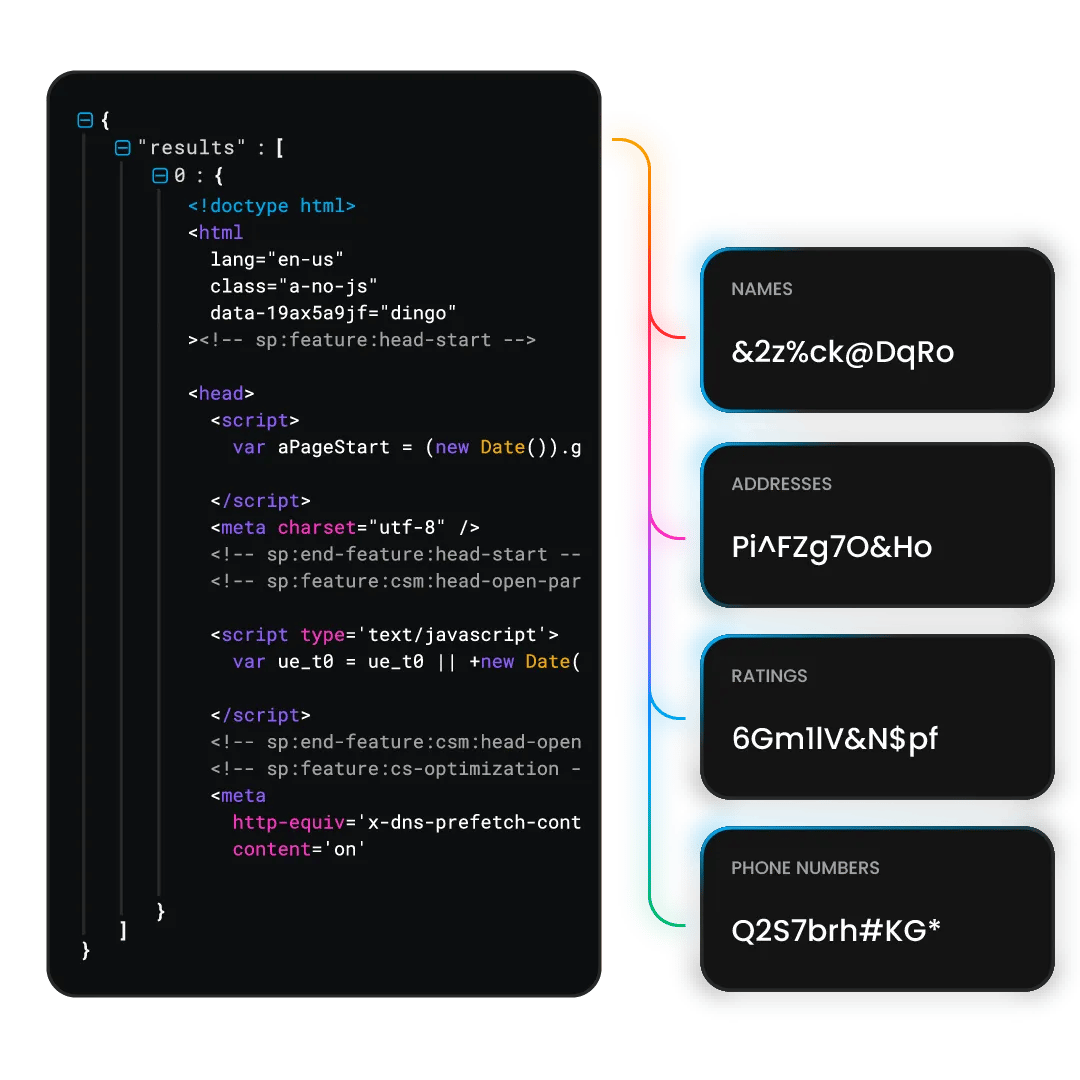
Extract reviews data at scale
Web Scraping API is a powerful data collector that combines a web scraper, a data parser, and a pool of 125M+ residential, mobile, ISP, and datacenter proxies.
Here are some of the key data points you can extract with it:
- Product reviews and ratings
- Review timestamps and authors
- Review titles and full text
- Verified purchase indicators
- Star ratings breakdown
- Review helpfulness votes
- Responses from sellers or brands
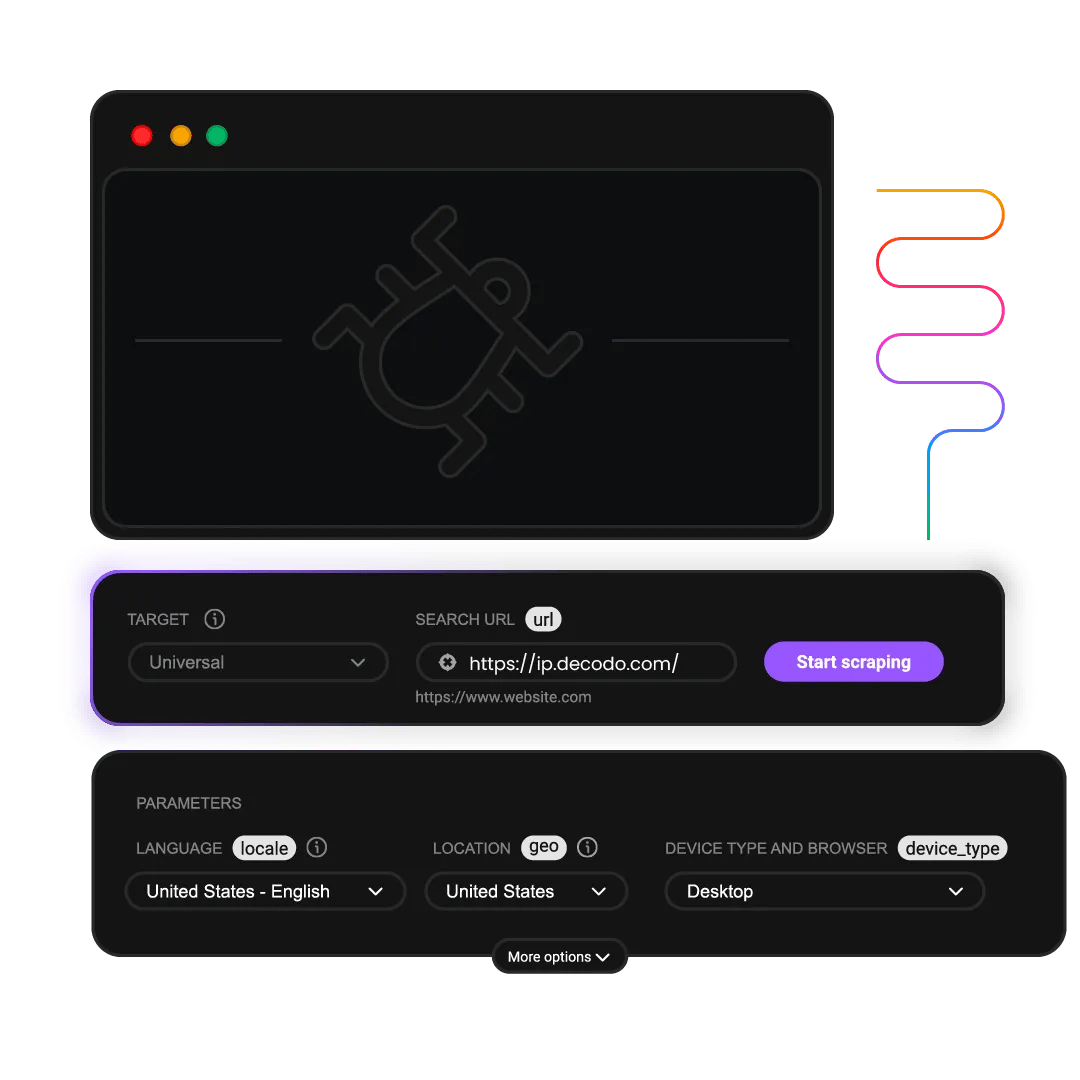
What is a reviews scraper?
A reviews scraper is a tool that extracts data from review websites or product pages.
With our Reviews Scraper API, you can send a single API request and receive the data you need in raw HTML or structured JSON format. Even if a request fails, we’ll automatically retry until the data is delivered. You'll only pay for successful requests.
Designed by our experienced developers, this tool offers you a range of handy features:
- Built-in scraper
- JavaScript rendering
- Easy API integration
- 195+ geo-locations, including country-, state-, and city-level targeting
- No CAPTCHAs or IP blocks
Scrape reviews with Python, Node.js, or cURL
Our reviews scraper API supports all popular programming languages for hassle-free integration with your business tools.
Reviews Scraper API is full of awesomeness
Scrape reviews with ease using our powerful API. From flexible output options to built-in proxy integration, we ensure seamless data collection without blocks or CAPTCHAs.
Flexible output options
Select from raw HTML, JSON, or parsed table results to suit your specific scraping needs.
100% success
Pay only for successfully retrieved results from your queries.
Real-time or on-demand results
Choose when you need the data – collect real-time results now or schedule the scraping tasks for later.
Advanced anti-bot measures
Leverage integrated browser fingerprints to avoid detection and CAPTCHAs.
Easy integration
Integrate our APIs into your workflows with straightforward quick start guides and code examples.
Proxy integration
Leave CAPTCHAs, IP blocks, and geo-restrictions behind with 125M+ IPs under the scraping API hood.
API Playground
Send your first test request using our interactive API Playground in the dashboard.
Free trial
Test drive our scraping solutions with a 7-day free trial and 1K requests.
Find the right reviews data scraping solution for you
Explore our Reviews scraper API offerings and choose the solution that suits you best – from core scrapers to advanced solutions.
Core
Advanced
Essential scraping features to unlock targets efficiently
Premium scraping solution with high customizability
Success rate
100%
100%
Anti-bot bypassing
Proxy management
API Playground
Task scheduling
Pre-build scraper
Ready-made templates
Advanced geo-targeting
Premium proxy pool
Unlimited threads & connections
JavaScript rendering
Explore our plans for any reviews scraping demand
Start collecting real-time data from review websites or product pages and stay ahead of the competition.
23K requests
$1.25
$0.88
/1K req
Total:$20+ VAT billed monthly
Use discount code - SCRAPE30
82K requests
$1.2
$0.84
/1K req
Total:$69+ VAT billed monthly
Use discount code - SCRAPE30
216K requests
$1.15
$0.81
/1K req
Total:$179+ VAT billed monthly
Use discount code - SCRAPE30
455K requests
$1.1
$0.77
/1K req
Total:$349+ VAT billed monthly
Use discount code - SCRAPE30
950K requests
$1.05
$0.74
/1K req
Total:$699+ VAT billed monthly
Use discount code - SCRAPE30
2M requests
$1.0
$0.7
/1K req
Total:$1399+ VAT billed monthly
Use discount code - SCRAPE30
Need more?
Chat with us and we’ll find the best solution for you
With each plan, you access:
99.99% success rate
100+ pre-built templates
Supports search, pagination, and filtering
Results in HTML, JSON, or CSV
n8n integration
LLM-ready markdown format
MCP server
JavaScript rendering
24/7 tech support
14-day money-back
SSL Secure Payment
Your information is protected by 256-bit SSL
What people are saying about us
We're thrilled to have the support of our 130K+ clients and the industry's best
Attentive service
The professional expertise of the Decodo solution has significantly boosted our business growth while enhancing overall efficiency and effectiveness.
N
Novabeyond
Easy to get things done
Decodo provides great service with a simple setup and friendly support team.
R
RoiDynamic
A key to our work
Decodo enables us to develop and test applications in varied environments while supporting precise data collection for research and audience profiling.
C
Cybereg
Featured in:
Decodo blog
Learn more about scraping, build knowledge on our solutions, or get fresh ideas – our blog is just the perfect place.
Most recent
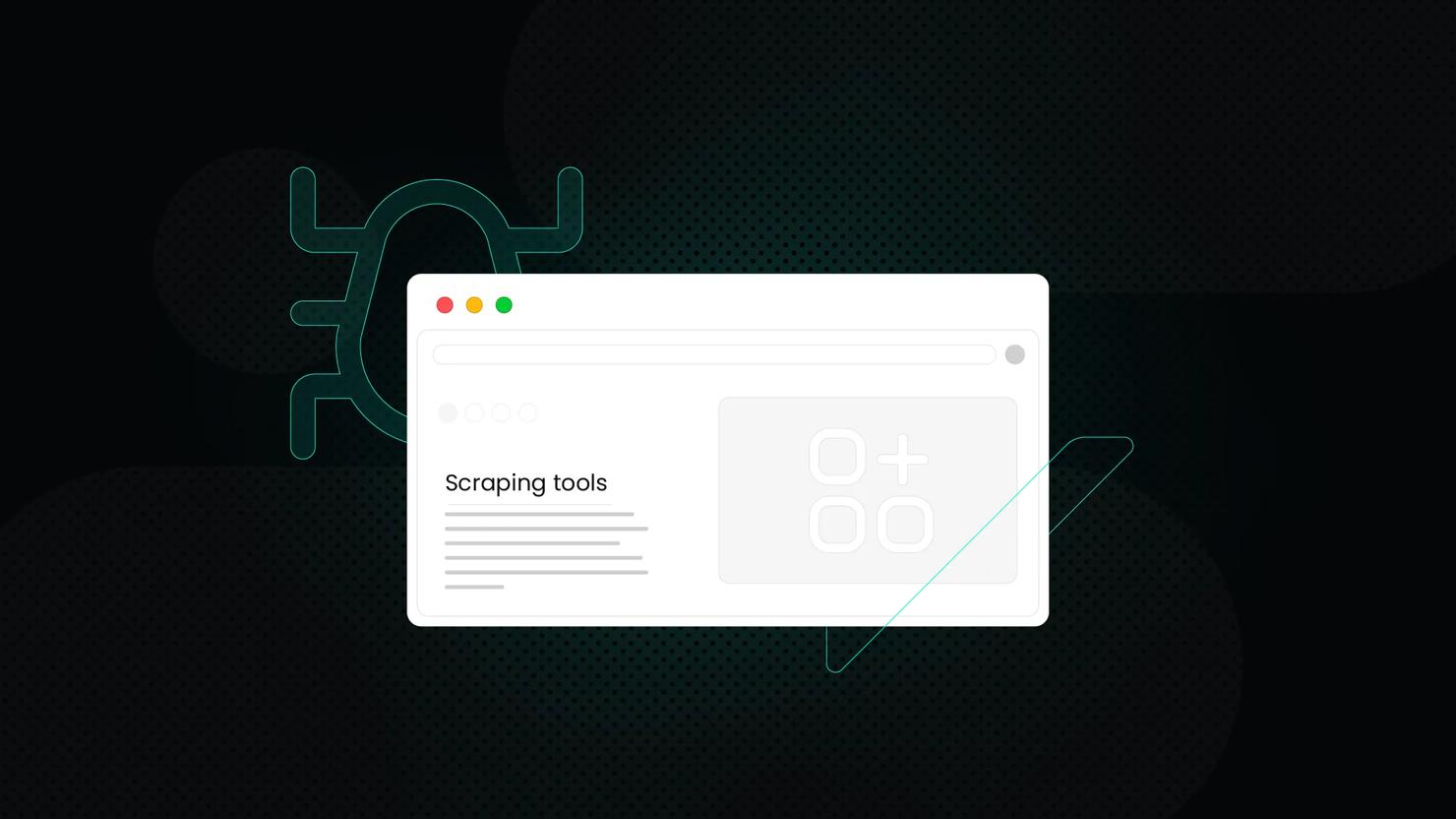
What is Data Scraping? Definition and Best Techniques (2026)
The data scraping tools market is growing significantly, valued at approximately $875.46M in 2026. The market is projected to grow more due to the increasing demand for real-time data collection across various industries.
Vytautas Savickas
Last updated: Jan 30, 2026
6 min read
Frequently asked questions
What platforms and applications can the Reviews scraper API integrate with?
Reviews scraper API integrates seamlessly with popular workflow automation tools, making it easy to plug review data into your existing stack. You can stream data directly into business intelligence platforms, databases, and CRM systems for deeper analysis and reporting. Whether you're using Google Sheets, Power BI, or Tableau, you can extract data and send it over through webhooks available on our dashboard.
What customer support channels are available for Reviews scraper API users?
Users can reach out to our 24/7 tech support via LiveChat. Our team is here to help with setup, troubleshooting, or custom scraping solutions. No matter the issue, we’ve got your back!
Is there a dedicated account manager or personalized support for enterprise clients?
Yes – enterprise clients get access to a dedicated account manager for hands-on onboarding and ongoing personalized support. With a bigger plan, you’re getting fast-track personalized troubleshooting and tips on how to scale your web scraping infrastructure efficiently.
What input options are available for collecting review data?
Our Web Scraping API supports various input options to help you collect review data with precision. You can input by URL, ID, or keyword. It also supports batch input and bulk scraping, allowing you to pull reviews from multiple target platforms at once. Whether you're scraping for a single product or an entire product catalog, you’re getting the information you need efficiently and at scale.
How do you ensure data accuracy and completeness during the scraping process?
We maintain high data accuracy and completeness through automatic retries and error handling, and built-in IP rotation. Every request passes through multiple validation checks to ensure you receive clean, structured, and reliable data. Our Web Scraping API is optimized for extracting even the largest datasets, guaranteeing a continuous flow of the most recent information from various platforms.
Is it legal to scrape reviews from websites and platforms?
The legality of scraping depends on the platform’s terms of service, your use case, and applicable local laws. We strongly advise ensuring your review scraping activities comply with public data access rules and suggest consulting legal counsel if you're unsure.
Reviews Scraper API for Your Data Needs
Gain access to real-time data at any scale without worrying about proxy setup or blocks.
14-day money-back option
